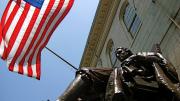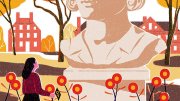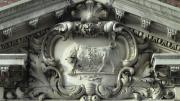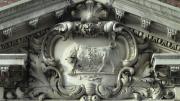In July, a Harvard committee recommended banning students from joining any final club or other unrecognized social organization, whether gender neutral in its membership practices or not. The ban, modeled on one at Williams College, would take effect beginning with students entering in the fall of 2018, and effectively end undergraduate participation in off-campus social organizations by 2022.
Prior committees charged with studying the impact of such organizations on undergraduate life published reports seeking to link them to sexual assault, and cited gender discrimination as the source of their negative social impacts. But the ban proposed by the current committee of faculty members, administrators, and students pivots to an expanded rationale: these organizations “go against the educational mission and principles espoused by Harvard University.” Citing student comments submitted as part of an earlier survey (rather than the survey data itself), the latest report argues that even though such organizations involve only a small number of students, their effects “permeate the fabric of campus culture.”
The Harvard policy, as proposed, reads:
Harvard students may neither join nor participate in final clubs, fraternities or sororities, or other similar private, exclusionary social organizations that are exclusively or predominantly made up of Harvard students, whether they have any local or national affiliation, during their time in the College. The College will take disciplinary action against students who are found to be participating in such organizations. Violations will be adjudicated by the Administrative Board.
In a dissenting opinion, Putnam professor of organismic and evolutionary biology David Haig framed the past academic year’s fiercely debated sanctions policies (see “Social-Club Saga,” May-June, page 18) as “a conflict between competing goods: on the one hand, respect for student autonomy and freedom of association; on the other hand, non-discrimination and inclusivity.” He noted the lack of good data on the effects of such organizations, and the fact that faculty opinion of the sanctions is unknown, because the policy has “never come to the faculty for a vote.” Because a 2016 survey of students showed 60 percent of respondents in favor of repealing an earlier sanctions policy, and 30 percent in favor of retaining it, he pointed to “a disconnect between these numbers…and the general tone of this committee’s report, which emphasizes deep unhappiness among students with the social environment created by the clubs….”
The committee recommending the ban was appointed in early March by dean of the Faculty of Arts and Sciences (FAS) Michael D. Smith, and includes dean of Harvard College Rakesh Khurana as co-chair. (Khurana’s earlier recommendations had led to the existing policy, and to his work with an “implementation committee.”) Smith charged the group with:
- reviewing existing policy, reports, and data;
- considering “whether there are other means of achieving our stated goals, including and especially that of fully advancing the non-discrimination objectives reflected in the current policy, and to evaluate whether any would be more effective than our current policy”; and
- proposing, “should more effective means be identified, changes or expansions to the current policy or a new approach.”
If the newly recommended policy is adopted, it would do away with the existing controversial regime of sanctions set to take effect this September that has been the subject of faculty debate since last fall—but it seems likely to spark a new debate. Whether the FAS will vote on the committee’s recommendations is itself likely to become an issue this fall, especially after a Crimson article raised questions about the committee’s commitment to reflecting the diversity of faculty opinions on the subject. The report itself does not mention a vote, instead inviting faculty feedback through a website, email, or during “open faculty discussions” at the beginning of the academic year. Such feedback “will be taken into account,” the report says, when the recommendation is presented in the fall to President Drew Faust, who “will make the final decision.” (For more information, see harvardmag.com/usgsoban-17.)









